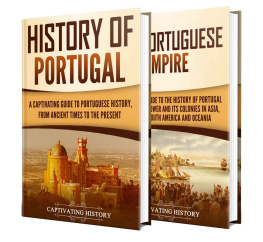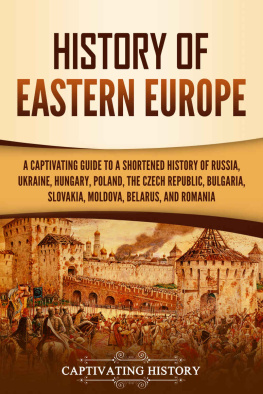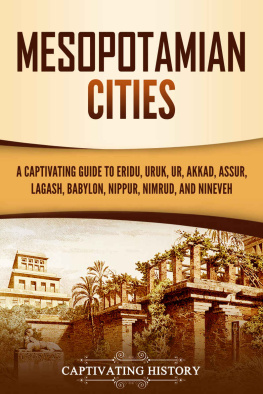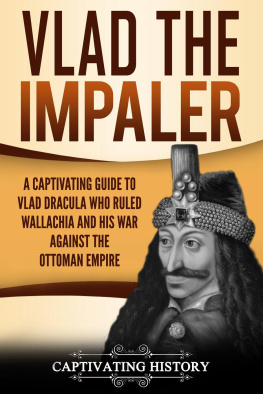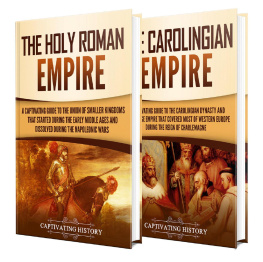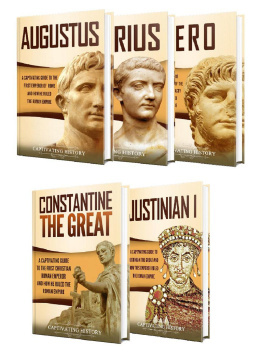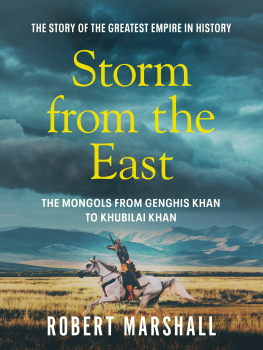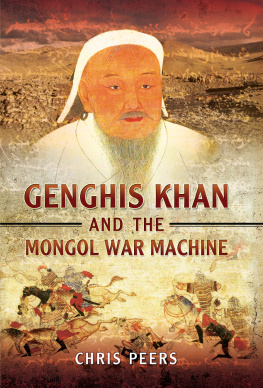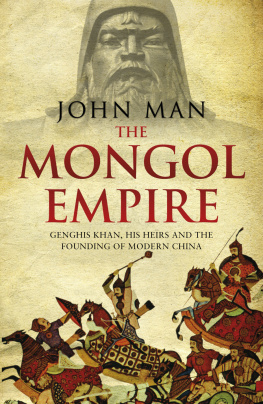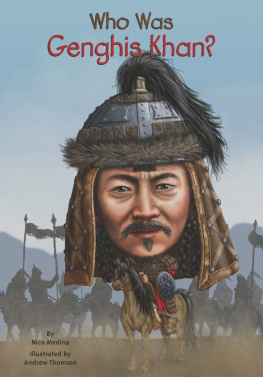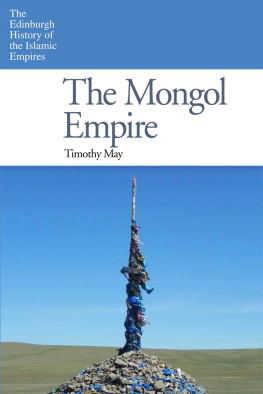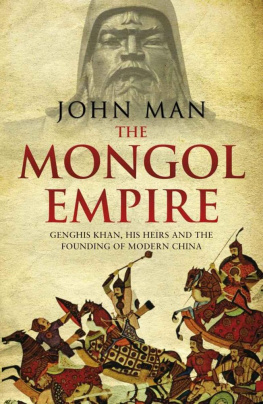Genghis Khan
A Captivating Guide to the Founder of the Mongol Empire and His Conquests Which Resulted in the Largest Contiguous Empire in History
Copyright 2019
All Rights Reserved. No part of this book may be reproduced in any form without permission in writing from the author. Reviewers may quote brief passages in reviews.
Disclaimer: No part of this publication may be reproduced or transmitted in any form or by any means, mechanical or electronic, including photocopying or recording, or by any information storage and retrieval system, or transmitted by email without permission in writing from the publisher.
While all attempts have been made to verify the information provided in this publication, neither the author nor the publisher assumes any responsibility for errors, omissions or contrary interpretations of the subject matter herein.
This book is for entertainment purposes only. The views expressed are those of the author alone, and should not be taken as expert instruction or commands. The reader is responsible for his or her own actions.
Adherence to all applicable laws and regulations, including international, federal, state and local laws governing professional licensing, business practices, advertising and all other aspects of doing business in the US, Canada, UK or any other jurisdiction is the sole responsibility of the purchaser or reader.
Neither the author nor the publisher assumes any responsibility or liability whatsoever on the behalf of the purchaser or reader of these materials. Any perceived slight of any individual or organization is purely unintentional.
Table of Contents
A round the year 1162 , near the modern capital of Mongolia, a baby boy was born into a fractious and violent world. The birth of this child must have caused quite a stir among the members of the nomadic tribe that he had been born into; word soon traveled that the son of Yesgei, the Borjigin tribal leader, had been born clutching a blood clot in his tiny hand. Mongol folklore hailed this as a sign that the child would grow up to be a great leader of men, but perhaps history would interpret the babys gruesome prize as a foreshadowing of the bloodshed that would accompany his life and his legacy.
The child was given the name Temjin, meaning blacksmith. While it may seem like a name that implies the child should grow up to work with iron, it was actually chosen by his father Yesgei after capturing a man named Temjin from a rival tribal groupone of the Tatars. It was an ironic twist for young Temjin. Little did Yesgei know that this rivalry with the Tatars would prove to be both his own undoing and the catalyst that propelled his son forward in his journey to becoming the leader of the largest contiguous empire the world would ever see.
Tribal history and family legends were incredibly important to the Mongol tribes. As nomads, they had very little built heritage or material possessions to wield as symbols of their power. The mythology and folklore that built up around a tribe was a huge part of what made them powerful, as the stories we are told shape who we become. As the son of a tribal leader, the auspicious birth of Temjin became all the more meaningful as the tribe recounted the bardic tales of their origins. The family of Yesgei had always been considered to have divine origins. His earliest ancestor was believed to be a grey wolf, endowed with divine power that passed down to his ancestors. The Secret History of the Mongols , the ancient text that describes Mongol history and the life of Temjin, states, There was once a blue-gray wolf who was born with his destiny preordained by Heaven Above. His wife was a fallow doe.
Every Mongol child born into the tribe would have been made very aware of the long line of tribesmen he had come from since ancestral worship was an important aspect of Mongol culture at this time. Temjin would have grown up knowing that his family history was prestigious, and he probably knew about the magical sign at his birth that was supposed to predestine him to greatness. As he grew up, he would learn how to take advantage of the power of reputation. He would master the art of ensuring that both his friends and his enemies only knew what he wanted them to know so that he could control how they perceived him and exploit their weaknesses. He would also use the fear he commanded to control the outcome of wars without the need to ever fight a battle. Yet when warfare was required, he never shied away from it.
The name Temjin means little to most people, but the name Genghis Khan is still a potent one. He is one of the most recognized characters from history, both respected and reviled, depending on ones perspective. The word character is a good choice here because the picture we have built up in our collective imaginations of Genghis Khan, fed by movies and stories, is of a character rather than a real man. And yet, much of the mythology surrounding him is true; many of those amazing quotable facts we hear about Genghis Khan are based in truth. For example, it is true that a surprisingly large proportion of the worlds population is indeed descended from Genghis Khan; as many as 0.5% of the male population carries his DNA. Another often quoted fact is that he killed more people than both World Wars; again, this is true. However, there are contradictions that come as a surprise. He was incredibly tolerant of other cultures, promoting religious freedom and diversity. He also treated his people well, as long as they obeyed his laws. It appears that he believed in meritocracy, equality, and fairness. So, how do we square the bloodthirsty genocidal villain with the progressive, religiously tolerant leader?
In many ways, the story of Temjin, and Genghis Khan as he would later be known, is a story about stories. We have few original sources to tell us about his life, and the sources we do have are often contradictory or untrustworthy, so historians have had to piece together the story of Genghis Khan and fill in the blanks. What you will read here is a combination of historical fact, expert conjecture, and myths and legends, filtered through the changing eyes of history and retold through many generations. There are many things we simply do not know about the enigmatic figure of Genghis Khan. There are many things that we think we know that may ultimately prove to be untrue. What is important is the story. Just as the young Temjin must have sat around a campfire to be regaled by stories of his ancestral wolf heritage, we now sit around this virtual campfire to share the story of Genghis Khan.
Chapter 1 The Mongolian Steppe
T emjin was a child who would go on to be a powerful uniting force, bringing together many different groups to create an almost unstoppable force under a strong, dominant leader. However, the world that he would shape was very different from the world he was born into. Far from being a unified empire, it was a world of warring factions where life was fraught with the danger of conflict.
Next page

